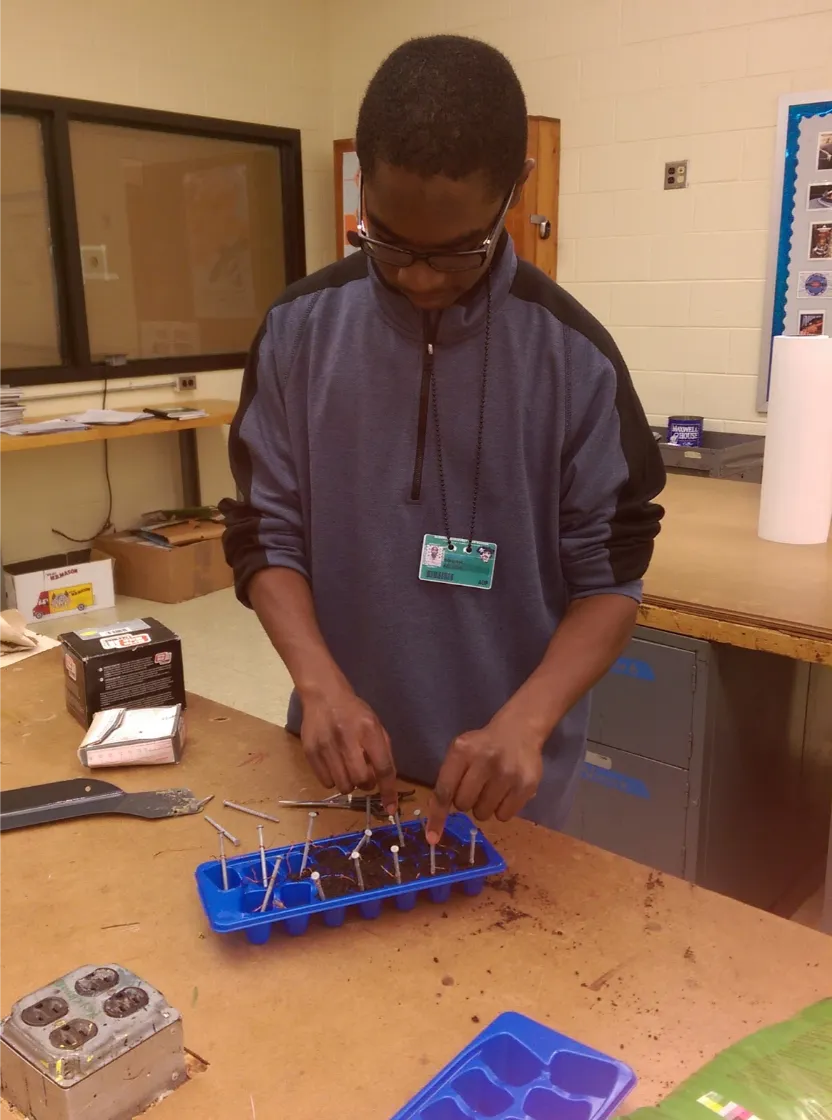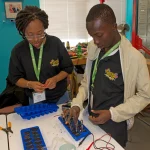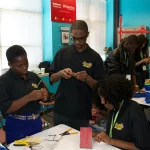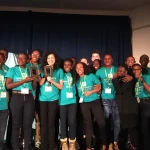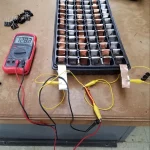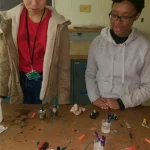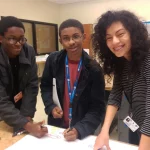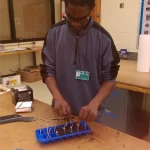Teacher: Dave Eisenberg

Dave Eisenberg
Dave has taught at Eleanor Roosevelt High School in Greenbelt, Maryland for 26 years. He teaches project-based engineering classes, serves as the Green School Coordinator, is a member of the ERHS Japanese Exchange Program committee, and sponsors both the Get Into Tech Club and the Astronomy Club. As a teacher, Dave has worked to incorporate both STEM/STEAM and global competency within his classroom. When he is not working as a teacher or traveling he competes in obstacle races. He also volunteers with the Washington Ice Dogs Special Hockey Team and the Howard County Special Olympics Swim Team.
Usefull links related to the Solution
Overview
This solution involved a bi-national team of students working together to identify a climate change issue and then developing a solution and constructing a prototype to solve the issue. Dave led the students from Eleanor Roosevelt High School in Maryland while they worked on the project with students from Edinaman Senior High School in Elmina, Ghana.
Theory of Change
Two teams of students – one from the Global North and one from the Global South – worked together to solve a community climate change-related issue affecting one of the teams. The two teams brought different perspectives and experiences to the project and this led them to increase their understanding of the effects of climate change across the world. The collaborative effort to solve an issue related to climate change led to both teams increasing their understanding of climate change and also developing cross-cultural collaboration and communication skills.
Approach and Actions
The students from the USA and from Ghana started by identifying local issues that were occurring as a result of climate change in their local areas. Using a variety of communication methods including email, WhatsApp and Google Meet, the student teams discussed the issues affecting their communities – comparing and contrasting the issues that were encountered in their different contexts.
The students chose to focus their project on power outages, as these occur regularly in Ghana. They particularly wanted to tackle this issue so that the Ghanaian students would be able to read at night.
The teams worked collaboratively to define the project and then to select and develop the solution. The teams then worked independently to construct and test prototype earth batteries, sharing all their results to facilitate learning across the teams.
Impact
The bi-national team was selected as the Grand Prize Winner at the IREX World Smarts STEM Challenge. The students found the experience so compelling that they raised money to continue the research and development of the earth battery after the completion of the project.
Through the project, the students developed their 21st Century Skills, particularly collaboration, problem-solving and communication. The project also demonstrated to the students that integrating environmental sustainability into education and actively involving the community in solution-finding can address environmental challenges effectively.






